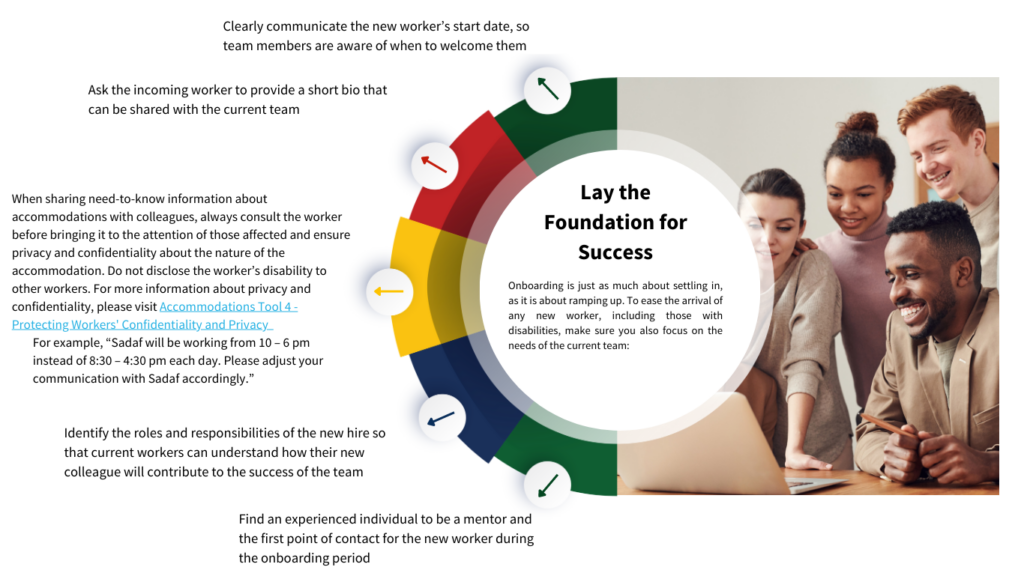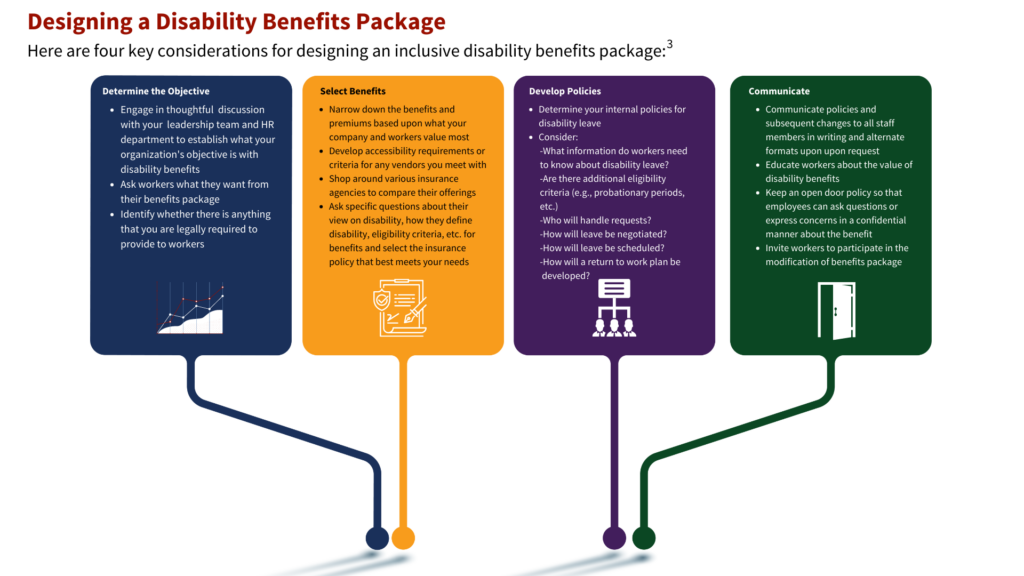Onboarding
A Manager’s Checklist for Accessible Onboarding
Who is this for?
High priority:
Direct Line Managers
Practical information:
Hiring Managers
Useful to know:
Staff in the finance department
What guidance does it provide?
A useful, fillable checklist tool to help create an accessible onboarding experience for all employees:
- Before the employee starts
- On the first day
- After the orientation and onboarding
Take home points
- Ensuring orientation and onboarding is a critical process for new hires. By providing a comfortable and supportive introduction is key to ensuring successful onboarding for all employees
Creating an Inclusive In-Person Onboarding Experience
Who is this for?
High priority:
Direct Line Managers
Useful to know:
DEI and HR professionals
What guidance does it provide?
How-to information for developing an inclusive and accessible onboarding experience
Take home points
- Provide the employee lists of materials on the typical orientation topics covered, so they can access them when they need them. Ideally the information should be available in multiple formats depending on the individual’s needs.
- Follow 3 steps to provide a comfortable and supportive introduction when onboarding: welcome, equip, and inspire
- After orientation and onboarding, set aside time to check in with the new worker and have a conversation about how they are adjusting.
- Sometimes small changes or accommodations will need to be made to the existing process to make for the most effective orientation.

Building an Accessible Remote Onboarding Experience
Who is this for?
High priority:
Direct Line Managers
Useful to know:
DEI and HR professionals
What guidance does it provide?
Specific considerations for enhancing the accessibility of onboarding policies and practices for all workers, including those with disabilities
Take home points
Remote onboarding follows the same process as onboarding on-site – workers still proceed through a series of activities that help them learn about their new workplace, colleagues, and company’s values and mission. However, there are key lessons learned from remote work that need to be adapted to when creating an inclusive and accessible remote onboarding experience. Pay close attention to:
- What work-life balance looks like
- Are accommodations present, and if so, are they implemented correctly
- How to optimize engagement
- Any challenges in communication
Recognize that there may be an increased need for communication with remote onboarding. By open communication you can learn more about what is working and what is not, if policies need to be adapted, and if there are other supports you can provide such as training, communication tools, and accessible documents

